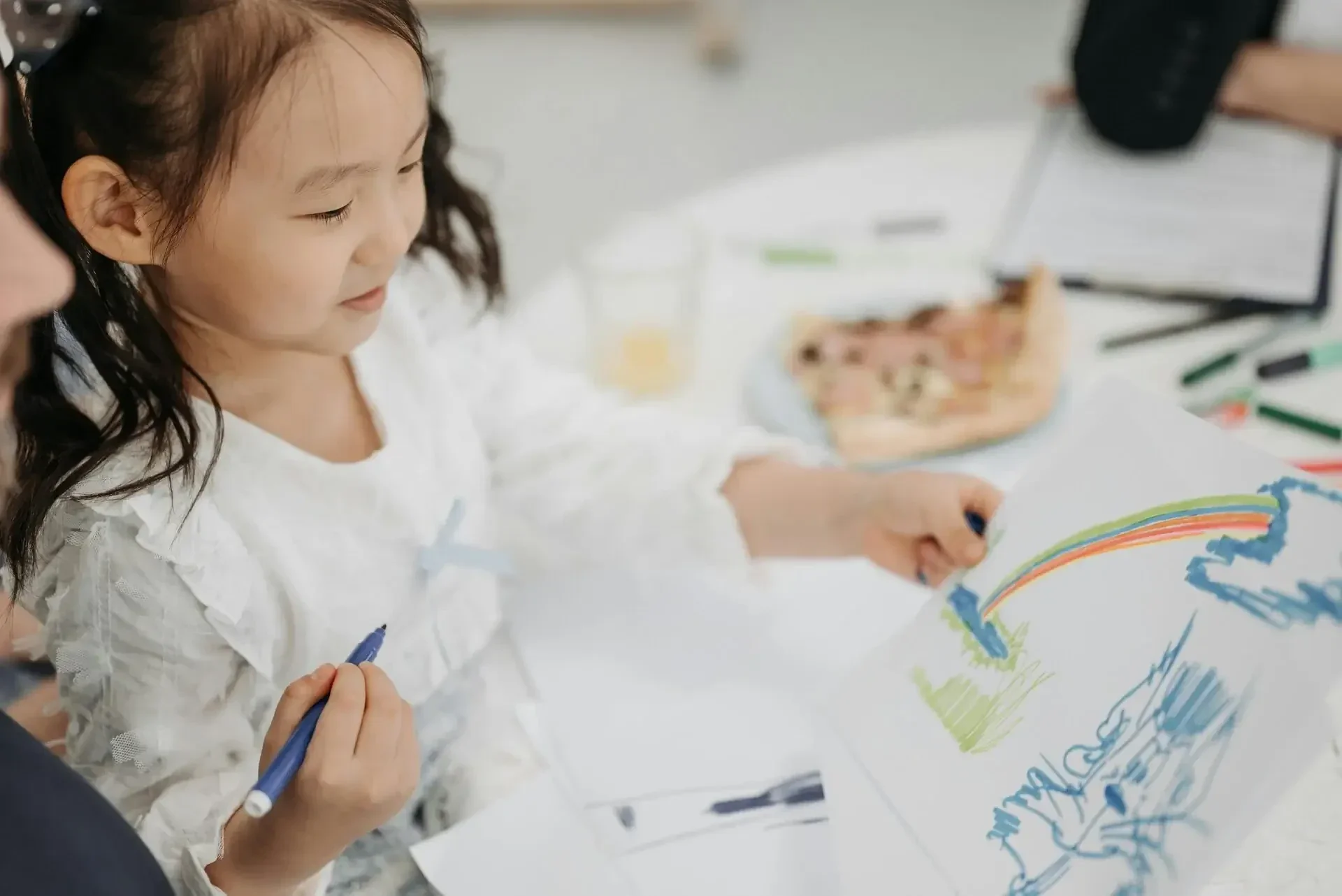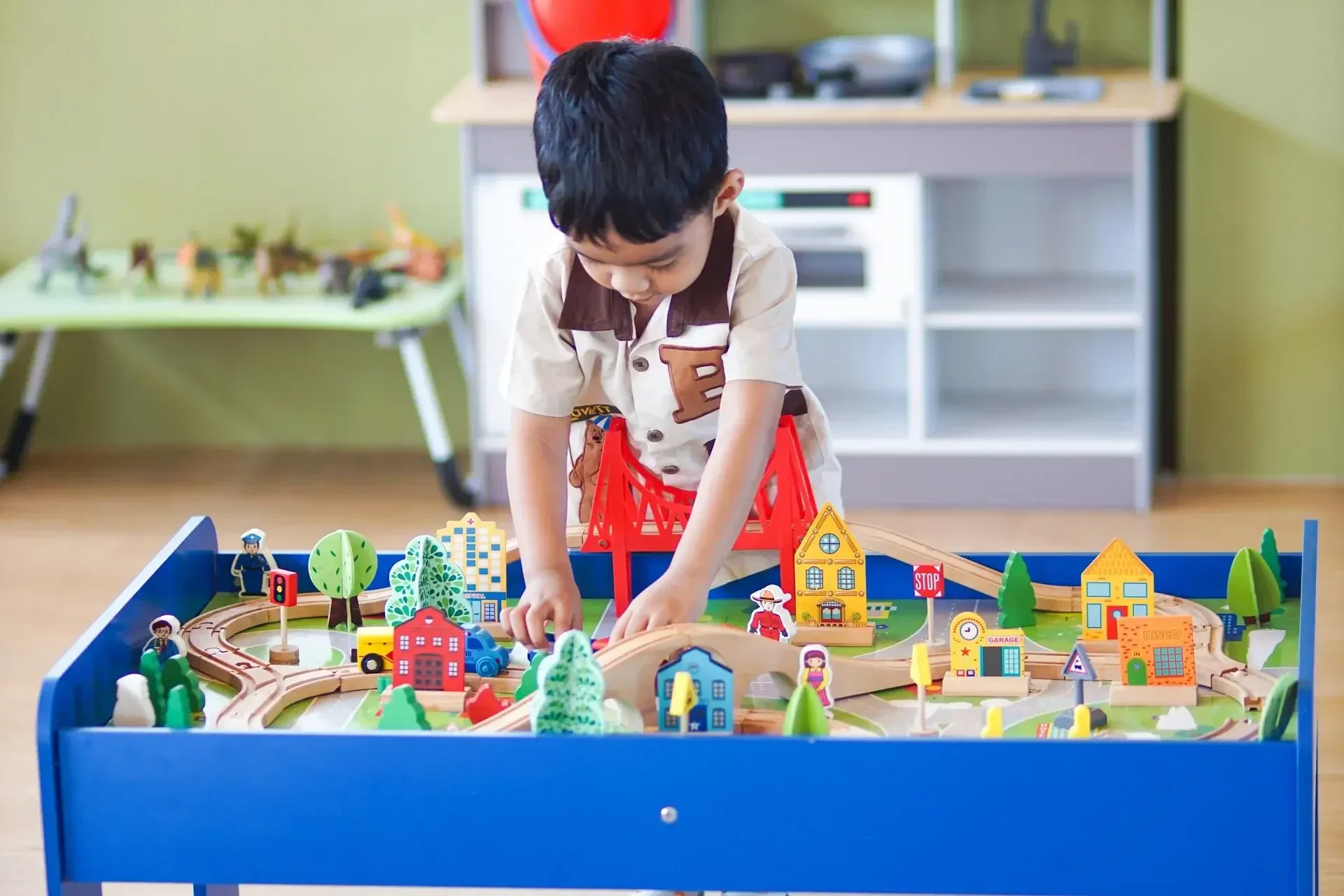Our play therapy services
Discover the range of play therapy services Patricia can offer in Hawke's Bay, New Zealand. She is committed to supporting the mental health of tamariki and their whānau, providing quality care and tailored support.

Services
- Individual Play Therapy: One-on-one sessions tailored to your child’s unique needs. Children explore feelings and worries safely through play, art, sandtray, and storytelling, building confidence and emotional strength at their own pace.
- Group Play Therapy: Small therapeutic groups for children to develop social skills, empathy, and emotional regulation in a supportive environment. Through shared play, they learn cooperation, communication, and build friendships.
- Professional Consultations: For parents, teachers, schools, and organisations seeking insights into a child’s behaviour, emotional needs, and effective strategies to support them. Bringing clarity and confidence to those caring for tamariki.
- Parenting Support: Warm, practical guidance to strengthen connection with your child, understand behaviour, and build positive parenting approaches that nurture their emotional wellbeing.
- Workshops: Interactive training for schools, professionals, and caregivers on child development, trauma-informed practice, and therapeutic play strategies to better support children in their care.
Each service is grounded in neuroscience, attachment theory, and trauma-informed practice, ensuring every child and whānau feels understood, respected, and empowered.

Who can benefit
Play Therapy is most effective for children aged 3 to 12 years, as it uses their natural language – play – to help them process and express what words cannot.
It can support tamariki experiencing:
- Anxiety or worries
- Low confidence or self-esteem
- Emotional outbursts or aggression
- Withdrawn or shut-down behaviour
- Grief and loss
- Trauma or stressful life events
- Family changes (separation, blending families, new siblings)
- Difficulties with friendships and social skills
- Attachment challenges
- Behavioural struggles at home or school
Children’s brains are still developing the connections needed for reasoning, reflection, and verbal processing of feelings. Play therapy works because it meets them where they are developmentally, allowing them to express and work through big feelings safely and naturally.

What to expect
During a typical Play Therapy session, your child will enter a calm, welcoming space filled with carefully selected toys, art materials, and creative resources. Sessions are child-led, meaning they choose what to explore:
- Creating stories with figures and animals
- Building or designing with blocks
- Exploring emotions through sandtray scenes
- Expressing feelings through drawing, painting, or clay
- Role playing real-life situations or worries
The therapist observes, reflects, and gently engages to help the child make sense of their experiences, process emotions, and build confidence. Parents and carers can expect a safe, confidential environment with regular check-ins to share general themes and ways to support their child at home.
Play therapy is not about teaching or correcting – it’s about giving your child space to express what words cannot, fostering resilience and emotional wellbeing at their own pace.
"Play Therapy strengthens the mental health of tamariki in our community by nurturing emotional resilience from an early age."
Patricia Hampel Play Therapy